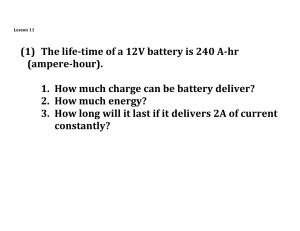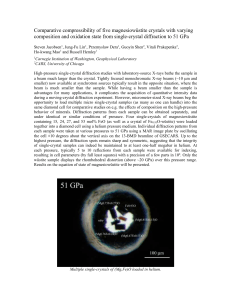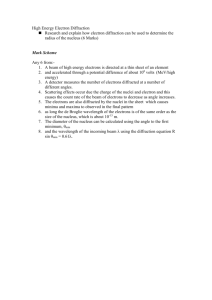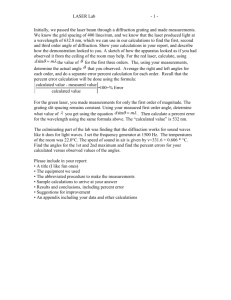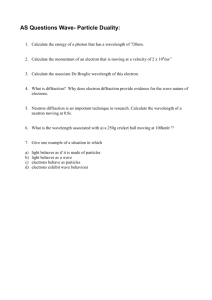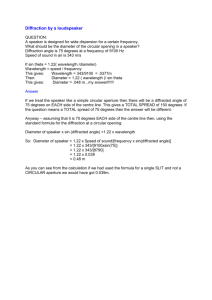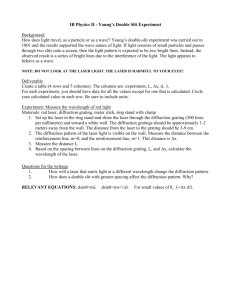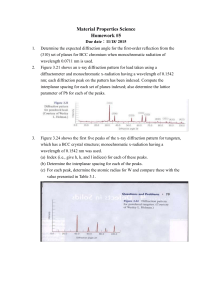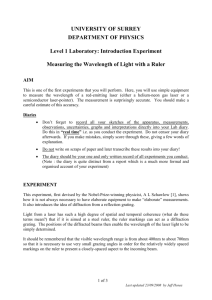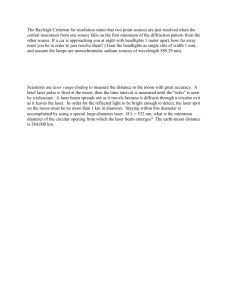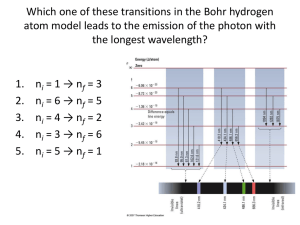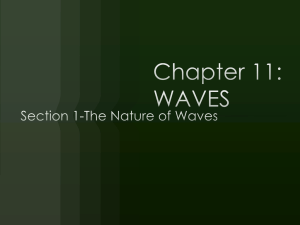Home Work Problem Set 11 11-1 Manufacturers of wire (and other
advertisement
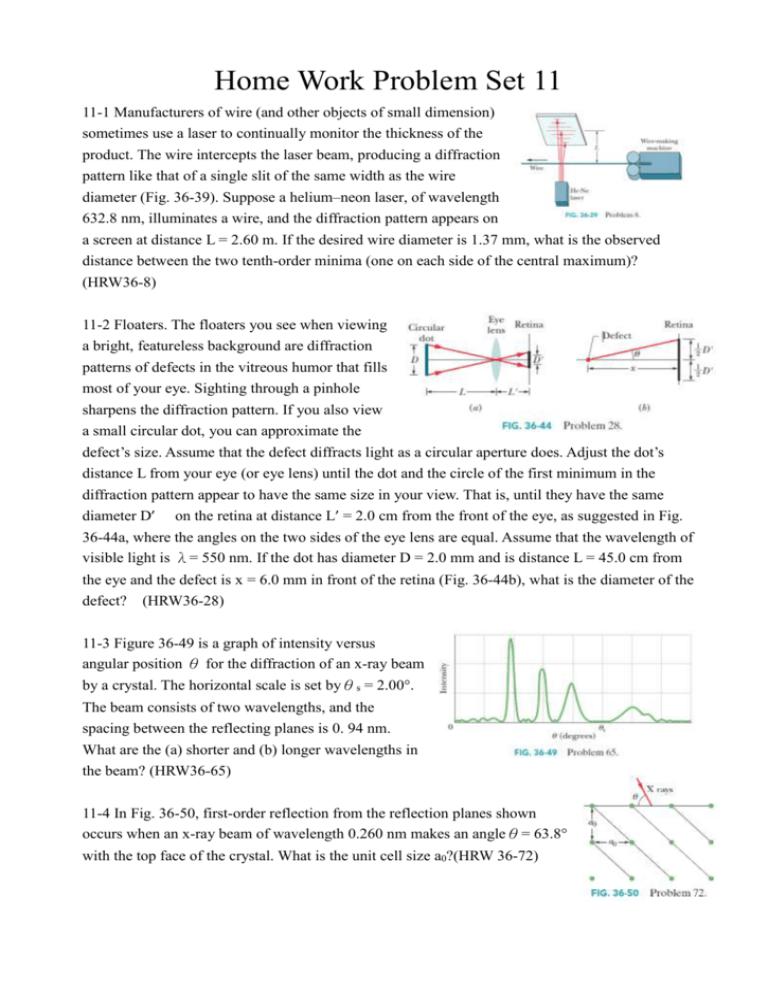
Home Work Problem Set 11 11-1 Manufacturers of wire (and other objects of small dimension) sometimes use a laser to continually monitor the thickness of the product. The wire intercepts the laser beam, producing a diffraction pattern like that of a single slit of the same width as the wire diameter (Fig. 36-39). Suppose a helium–neon laser, of wavelength 632.8 nm, illuminates a wire, and the diffraction pattern appears on a screen at distance L = 2.60 m. If the desired wire diameter is 1.37 mm, what is the observed distance between the two tenth-order minima (one on each side of the central maximum)? (HRW36-8) 11-2 Floaters. The floaters you see when viewing a bright, featureless background are diffraction patterns of defects in the vitreous humor that fills most of your eye. Sighting through a pinhole sharpens the diffraction pattern. If you also view a small circular dot, you can approximate the defect’s size. Assume that the defect diffracts light as a circular aperture does. Adjust the dot’s distance L from your eye (or eye lens) until the dot and the circle of the first minimum in the diffraction pattern appear to have the same size in your view. That is, until they have the same diameter D’ on the retina at distance L’ = 2.0 cm from the front of the eye, as suggested in Fig. 36-44a, where the angles on the two sides of the eye lens are equal. Assume that the wavelength of visible light is λ= 550 nm. If the dot has diameter D = 2.0 mm and is distance L = 45.0 cm from the eye and the defect is x = 6.0 mm in front of the retina (Fig. 36-44b), what is the diameter of the defect? (HRW36-28) 11-3 Figure 36-49 is a graph of intensity versus angular position θ for the diffraction of an x-ray beam by a crystal. The horizontal scale is set byθs = 2.00°. The beam consists of two wavelengths, and the spacing between the reflecting planes is 0. 94 nm. What are the (a) shorter and (b) longer wavelengths in the beam? (HRW36-65) 11-4 In Fig. 36-50, first-order reflection from the reflection planes shown occurs when an x-ray beam of wavelength 0.260 nm makes an angleθ= 63.8° with the top face of the crystal. What is the unit cell size a0?(HRW 36-72)
